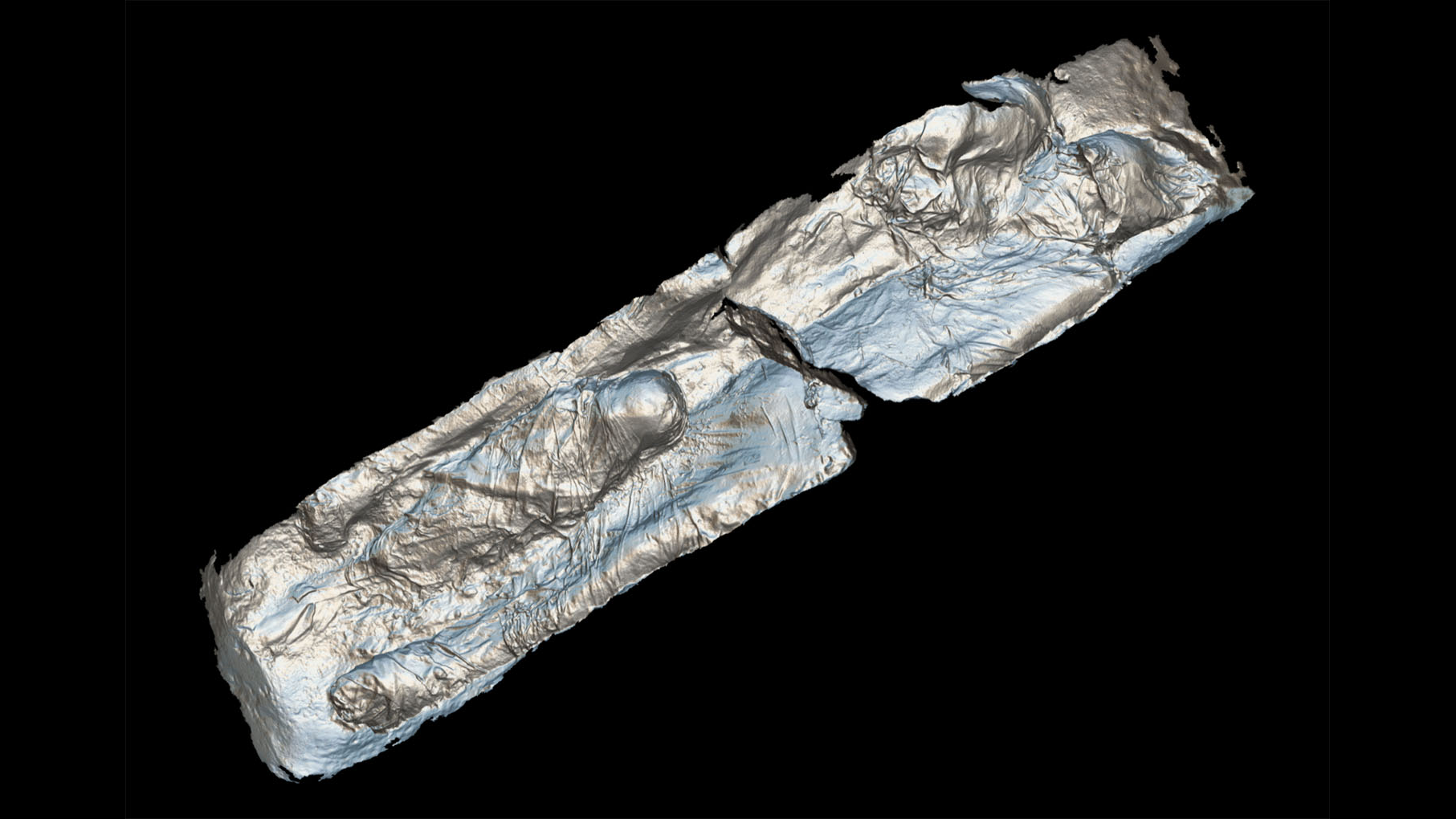
Mindy Weisberger
Mindy Weisberger is a science journalist and author of the book "Rise of the Zombie Bugs: The Surprising Science of Parasitic Mind-Control," published by Hopkins Press. She formerly edited for Scholastic and reported for Live Science as a channel editor and senior writer. She has reported on general science, covering climate change, paleontology, biology and space. Mindy studied film at Columbia University; prior to Live Science she produced, wrote and directed media for the American Museum of Natural History in New York City. Her videos about dinosaurs, astrophysics, biodiversity and evolution appear in museums and science centers worldwide, earning awards such as the CINE Golden Eagle and the Communicator Award of Excellence. Her writing has also appeared in Scientific American, The Washington Post, How It Works Magazine and CNN.
Latest articles by Mindy Weisberger

Why do you usually eat the same thing for breakfast?
By Mindy Weisberger published
Researchers found that people are more likely to seek variety for lunch and dinner, while eating the same thing for breakfast day after day.

Underground Railroad secrets revealed with drones, lasers and radar
By Mindy Weisberger published
Archaeologists and historians have uncovered new clues about the Underground Railroad and the people who risked their lives to escape enslavers in 19th-century America.

A newborn died of Lassa fever in the UK, two other family members ill
By Mindy Weisberger published
Three cases of Lassa fever were recently confirmed in the U.K., for the first time since 2009. One of the patients — a newborn — has died.
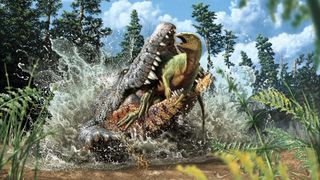
'Killer' Cretaceous croc devoured a dinosaur as its last meal
By Mindy Weisberger published
The ancient reptile fossilized with a full belly.

5 million shipwrecked Legos still washing up 25 years after falling overboard
By Mindy Weisberger published
A once-in-a-century wave that struck a cargo ship 25 years ago caused the worst toy-related environmental disaster of all time, known as the Great Lego Spill.
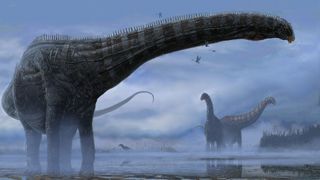
Achoo! Respiratory illness gave young 'Dolly' the dinosaur flu-like symptoms
By Mindy Weisberger published
Hacking coughs, uncontrollable sneezing, high fevers and pounding headaches can make anyone miserable — even a dinosaur.
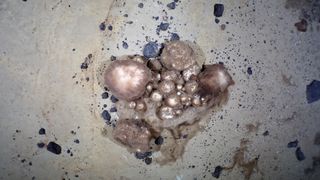
300-year-old Arctic sponges feast on the corpses of their decaying, extinct neighbors
By Mindy Weisberger published
Bacteria help the sponges digest extinct creatures' remains.

Could the moon ever be pushed from orbit, like in 'Moonfall'?
By Mindy Weisberger published
What would it take to dislodge the moon from its orbit and send it on a collision course with Earth?
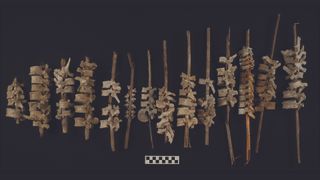
Human spines on sticks found in 500-year-old graves in Peru
By Mindy Weisberger published
Reed-threaded vertebrae, some of which date to nearly 600 years ago, were found in tombs in coastal Peru. This unusual mortuary practice may have been a way to reassemble desecrated remains.
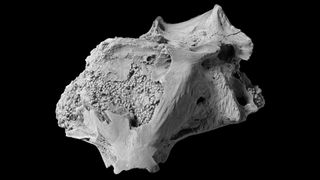
'Wonderfully-shaped feces' found inside ancient fish skull. What left the pretty poops?
By Mindy Weisberger published
About 9 million years ago, marine worms burrowed into a dead fish's head and left behind a skull full of fossilized poop.

See first-ever photos of polar bears playing house in the Russian Arctic
By Mindy Weisberger published
A wildlife photographer recently captured images of polar bears like you've never seen them before: living in abandoned buildings in the Russian Arctic.
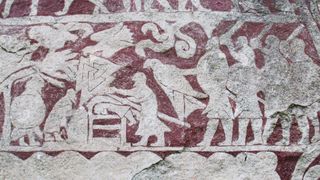
Vikings' 'blood eagle' torture was horrific — and may have actually happened
By Mindy Weisberger published
It literally turned victims inside out.

Webb Telescope is now orbiting 1 million miles from Earth
By Mindy Weisberger published
After a month in space, the Webb Telescope — the most powerful space telescope ever launched — has reached its permanent cosmic address, 930,000 miles (1.5 million kilometers) from Earth.

On the 'doorstep of doom': Doomsday Clock stands at 100 seconds to midnight
By Mindy Weisberger published
The hypothetical clock's hands mark our nearness to annihilation.

Will the Doomsday Clock move forward or back? Watch live to find out
By Mindy Weisberger published
The Doomsday Clock debuted 75 years ago to highlight the threat of nuclear weapons to our survival as a species, a risk now accompanied by escalating climate change and global pandemics.

Look up! A 'potentially hazardous' asteroid will safely zip by Earth on Jan. 18
By Mindy Weisberger published
An enormous asteroid more massive than two Empire State Buildings will zoom harmlessly past Earth next week. Look up!
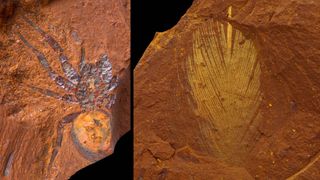
Rare and fragile fossils found at a secret site in Australia's 'dead heart'
By Mindy Weisberger published
A site in Australia that holds thousands of astonishingly well-preserved fossils has been kept a closely guarded secret among paleontologists for the past three years.

Ancient dog-headed statue found during Roman road excavation
By Mindy Weisberger published
During an archaeological inspection of a waterway project site in Rome, archaeologists found ancient funerary relics, including a terracotta statue with a dog's head.

'Cosmic monster' star spits energy with the force of a billion suns
By Mindy Weisberger published
Scientists just collected the first measurements of violent eruptions in extremely dense magnetic stars called magnetars.
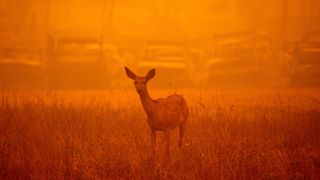
8 ominous climate milestones reached in 2021
By Mindy Weisberger published
Signs of accelerating global warming abounded this year, but we could still prevent the worst-case scenarios — if we act soon.
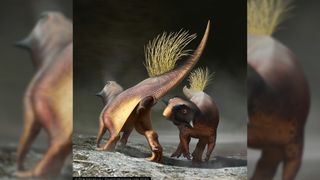
Live Science's best of 2021: Writers' choice
By Mindy Weisberger published
In a year of unusual and surprising news at Live Science, these stories stood out.
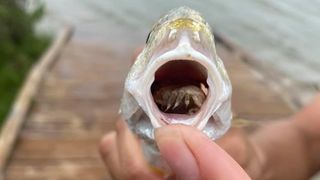
Social vomit and hairy eyeballs: 10 times animals grossed us out in 2021
By Mindy Weisberger published
Here are some of our favorite gross-outs in science news this year.

In a historic launch, the Webb Telescope blasts off into space
By Mindy Weisberger published
An international partnership of space agencies just launched JWST, the biggest, most powerful space telescope ever made, in an achievement that was decades in the making.

Darkness caused by dino-killing asteroid snuffed out life on Earth in 9 months
By Mindy Weisberger published
After an asteroid struck at the end of the Cretaceous period, debris from wildfires filled the atmosphere and blocked sunlight across Earth, causing ecosystem collapse and extinctions.
Get the world’s most fascinating discoveries delivered straight to your inbox.

